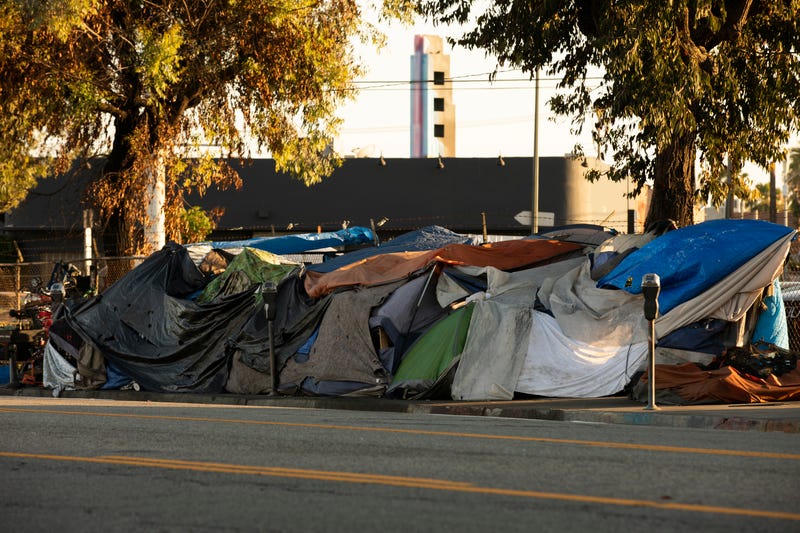
In April, the California Supreme Court rejected a request to block Gov. Gavin Newsom’s CARE Court program, which will allow judges to order mental health treatment for adults with psychotic disorders. After months of delays, the program is expected to be launched this fall.
While advocates praise CARE Court as a way to help those struggling with substance abuse and mental illness, especially the homeless, dozens of human rights organizations say it won’t do anything to address the root of the state’s homelessness crisis.
New York City adopted a similar policy earlier this year, allowing first responders to involuntarily hospitalize anyone on the streets who “appears to be mentally ill” or “displays an inability to meet basic living needs.” The directive was met with controversy, but Alex Barnard, a sociologist at NYU, told Rob Archer and Charles Feldman on KNX In Depth that it actually isn’t that revolutionary.
“Involuntary treatment has always been an option in New York for people who are deemed a danger to themselves or others or unable to meet their basic needs, and it’s been happening to thousands of people per year,” Barnard said. “What has changed is, in November 2022, the mayor put out a directive telling street outreach teams and the police to interpret a little bit more broadly the standard for involuntary hospitalization.”
Importantly, the new policy also has provisions that keep patients in hospitals longer, giving them time to receive adequate treatment and connect with housing. The New York Times reports that most of the people hospitalized by a Bronx outreach agency are now in or headed for permanent housing.
Sarah Hunter, director of the RAND Center on Housing and Homelessness, said the shortage of available housing makes the process more difficult in L.A.
“If you end up in the hospital, an L.A. County hospital or an L.A. County jail, and you are deemed having a serious chronic health condition, and experiencing homelessness, you are put on a pathway to housing,” Hunter said. “The issue is, there’s a long waitlist to getting that housing.”
Hunter said people can spend up to two years waiting to access supportive housing or enhanced residential care because of the lack of resources.
CARE Court will allow judges to recommend housing as part of a patient’s treatment plan, but it remains unclear if that housing process will be any different from the current waitlist. Lisa Wong, the director of L.A. County’s Department of Mental Health, estimated that 6,000 people will qualify for CARE Court, and the county only has until December to figure out how to meet the demand.
Follow KNX News 97.1 FM
Twitter | Facebook | Instagram | TikTok


